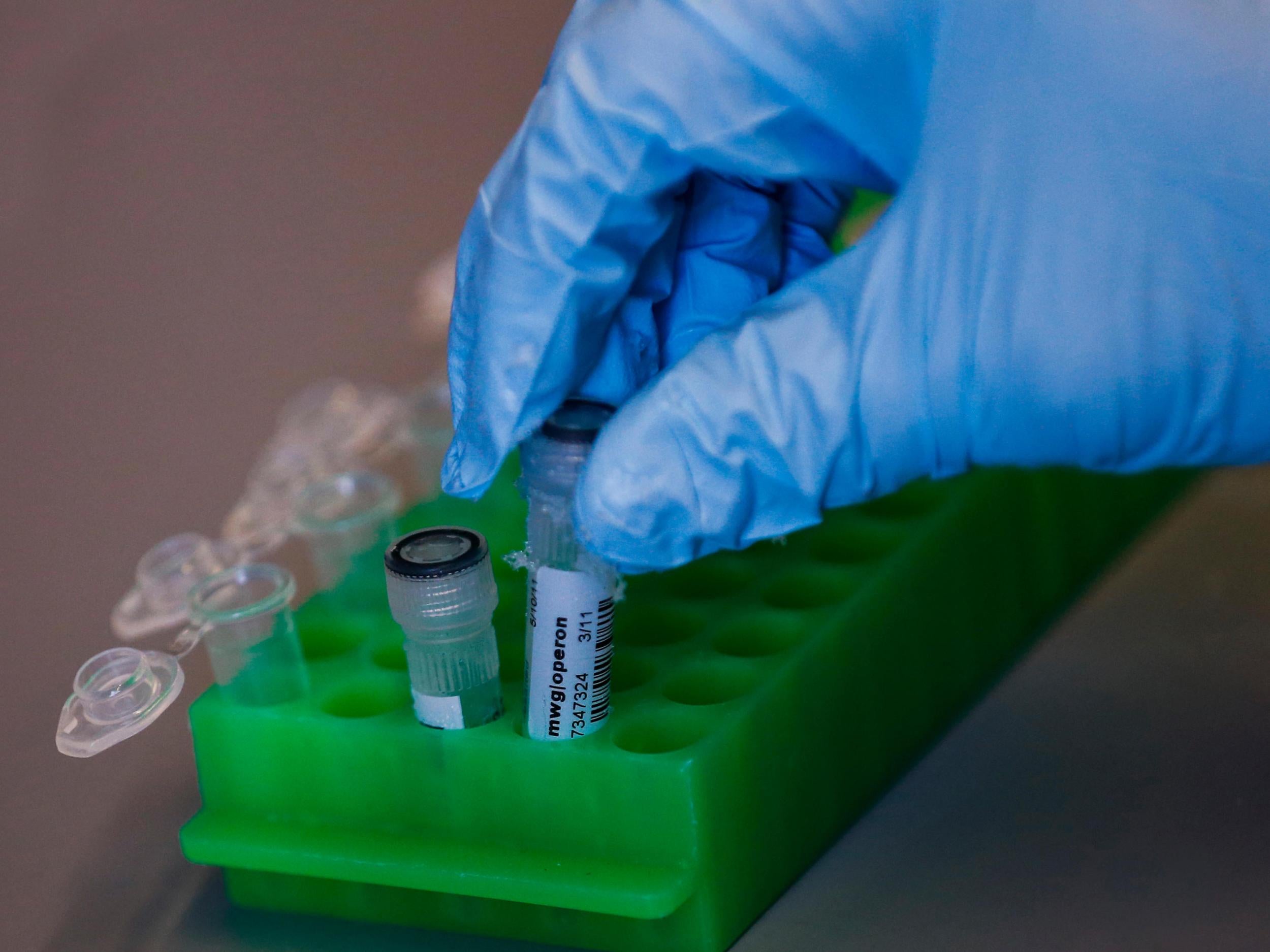Patients miss out on genetic cancer testing due to NHS rules, researchers warn
Access to genetic cancer testing ‘complicated’ and ‘restricted’, warns Institute of Cancer Research

Your support helps us to tell the story
From reproductive rights to climate change to Big Tech, The Independent is on the ground when the story is developing. Whether it's investigating the financials of Elon Musk's pro-Trump PAC or producing our latest documentary, 'The A Word', which shines a light on the American women fighting for reproductive rights, we know how important it is to parse out the facts from the messaging.
At such a critical moment in US history, we need reporters on the ground. Your donation allows us to keep sending journalists to speak to both sides of the story.
The Independent is trusted by Americans across the entire political spectrum. And unlike many other quality news outlets, we choose not to lock Americans out of our reporting and analysis with paywalls. We believe quality journalism should be available to everyone, paid for by those who can afford it.
Your support makes all the difference.Half of patients who could benefit from genetic cancer testing are missing out due to ‘complicated’ NHS rules, a new study suggests.
Experts from the Institute of Cancer Research (ICR) have said NHS should widen out its guidelines on which patients can receive tests that can detect genetic mutations linked to cancer, after a study found half of patients carrying “harmful” genes would have missed out on testing.
Researchers warned around half the people who are at high risk of developing cancer might be missing out on monitoring, screening or preventative treatment.
They said access to genetic testing for cancer was “complicated” and restricted to only those with a strong family history of the disease.
The study, which looked at patients who were privately tested, found about half - seven out of 15 - of those found to carry a harmful or probably harmful variant would not have been eligible under NHS guidelines.
The team, ICR in London, said their findings present “a strong case” for the NHS to give more patients access to gene testing.
However, the researchers said broader testing could also have negative consequences, and place more pressure on the NHS.
Professor Kristian Helin, chief executive of the ICR, said: "Over the last 20 years, we have gained a far greater understanding of the inherited genetic changes which can increase a person’s risk of developing cancer.
"That increasingly opens up the possibility of genetic testing to identify those people at the highest cancer risk, and to support them with strategies for cancer prevention or early detection.
"Unfortunately, accessing genetic testing on the NHS can be complicated and tends to be restricted to those people with a strong family history.
"Our new research shows that we are missing people who could benefit from genetic testing. I hope the findings will ultimately help improve national testing guidelines so that we can help more people at high risk of cancer."
As well as picking up on concerning mutations, the tests also detected "variants of unknown significance", for which there is no clear course of action, in about 34 per cent of the study’s 152 total participants.
Finding these variants, the researchers said, could increase pressures on the NHS through the need for follow-up checks and cause some unnecessary anxiety for patients.
Professor Ros Eeles, professor of oncogenetics at the ICR, said: "We feel there is a strong case to widen access to cancer gene testing on the NHS.
"There is however also a trade-off to doing so, through an increased chance of ambiguous findings which need follow-up and can worry patients unnecessarily.
"We need larger studies to work out exactly where the revised NHS threshold for testing should be, to maximise the benefit in people at high risk of cancer, while minimising the burden on patients and the NHS of follow-up investigations."
The team also said the data will need to be further validated but they were confident the findings demonstrated current guidelines needed to change.
The study, supported by the NIHR Biomedical Research Centre at The Royal Marsden NHS Foundation Trust, has been published in the journal Scientific Reports.
An NHS spokesperson said: "We launched the National Genomic Test Directory in 2018 and this provides us with a clear process to review new and emerging evidence to direct any updates that may be required."

Join our commenting forum
Join thought-provoking conversations, follow other Independent readers and see their replies
Comments